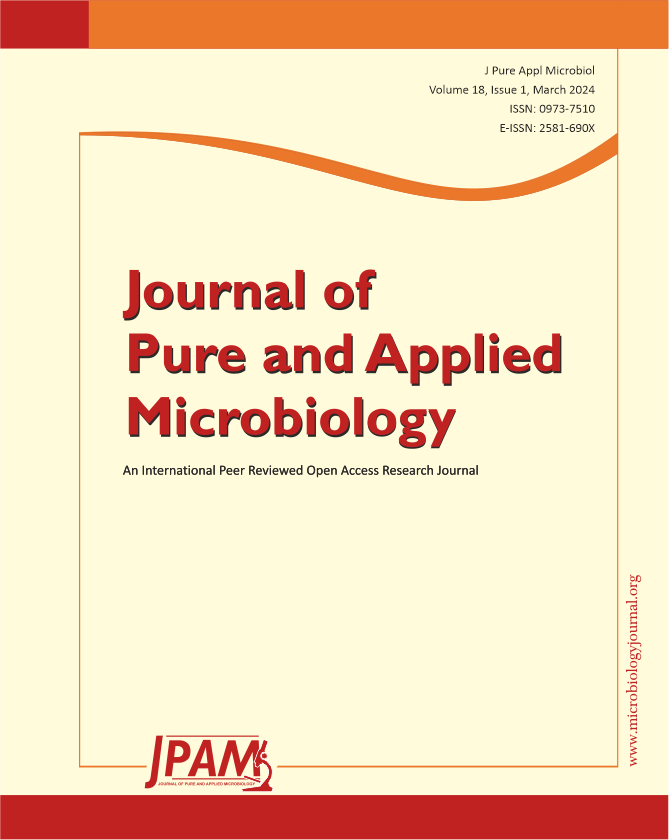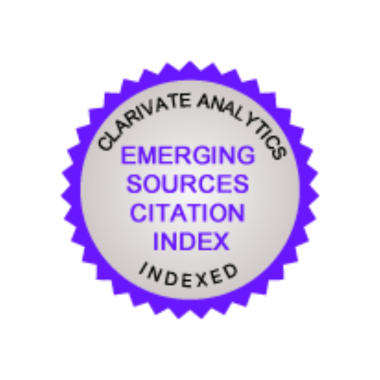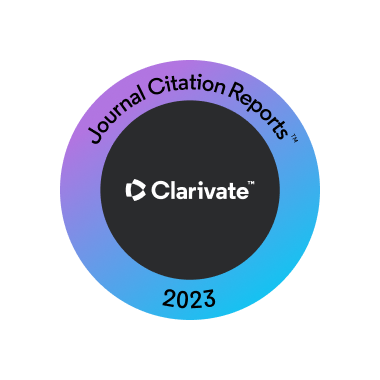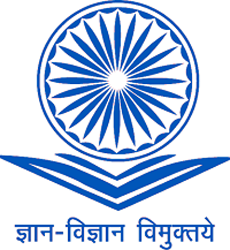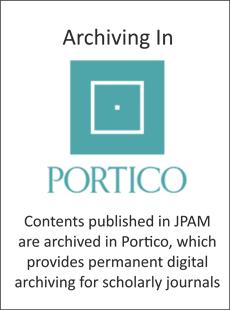Journal of Pure and Applied Microbiology (JPAM) is a peer-reviewed, open access, quarterly published international journal of microbiology strives to provide a forum for worldwide scientific researchers, academics, clinicians and microbiologists for publication of high quality reviews, research articles, short communications and clinical studies pertaining to all aspects of microbiology and its allied disciplines. All original articles reporting work on micro-organisms including viruses, bacteria, algae and fungi are welcomed. Articles must present information that is novel, has high impact and interest, and is of high scientific quality that makes significant contribution to the field as a whole. Read more
Dr. Iqbal Ahmad![]()
Department of Agricultural Microbiology, Aligarh Muslim University, Aligarh,
India
Dr. Kuldeep Dhama![]()
Division of Pathology, ICAR – Indian Veterinary Research Institute, Bareilly,
India
We are delighted to announce the inclusion of Journal of Pure and Applied Microbiology (JPAM) among the world’s best journals in the Microbiology category. JPAM has achieved an Impact Factor of 0.8 as an Emerging Sources Citation Index (ESCI) journal. This inclusion in the Journal Citation Reports (JCR) as an ESCI-indexed journal demonstrates our dedication to providing the most relevant and influential Microbiology content to our community. We are thankful to every author, peer reviewer and editor who contributed.
Source: Clarivate 2023 #JCR2023
Review Article | Open Access
Novel Insights into the Antimicrobial Resistance and Strategies to Curb the Menace
Bibhuti Panda1![]() , Prasana Kumar Rath2*
, Prasana Kumar Rath2*![]() , Bidyut Prava Mishra3
, Bidyut Prava Mishra3![]() , Jyotiprabha Mishra4
, Jyotiprabha Mishra4![]() , Biswadeep Jena5
, Biswadeep Jena5![]() , Pragnya Smita Mishra2, Ankita Chakraborty2, Debasish Hota2 and Manoj Kumar Jena6*
, Pragnya Smita Mishra2, Ankita Chakraborty2, Debasish Hota2 and Manoj Kumar Jena6*![]()
https://doi.org/10.22207/JPAM.18.1.42
Review Article | Open Access
Antimicrobial Resistance: Techniques to Fight AMR in Bacteria – A Review
Ernessto Mahizhchi, Diveyaa Sivakumar and Megala Jayaraman*![]()
https://doi.org/10.22207/JPAM.18.1.53
Review Article | Open Access
Biochar: A Comprehensive Review on a Natural Approach to Plant Disease Management
Lham Dorjee1![]() , K. Nishmitha1
, K. Nishmitha1![]() , Sudeepta Pattanayak1
, Sudeepta Pattanayak1![]() , Tsedar Wangmu2, Shweta Meshram3
, Tsedar Wangmu2, Shweta Meshram3![]() , Sushma Chongtham4
, Sushma Chongtham4![]() and Robin Gogoi1*
and Robin Gogoi1*![]()
https://doi.org/10.22207/JPAM.18.1.58
Review Article | Open Access
Pathogenic Factors of Shiga Toxigenic Escherichia coli
Tharakupeedikayil Abdul Majeed Sajeena1,2*![]() and Sudha Kalyanikutty3
and Sudha Kalyanikutty3![]()
https://doi.org/10.22207/JPAM.18.1.22
Review Article | Open Access
An Insight into the Role of Phenolics in Abiotic Stress Tolerance in Plants: Current Perspective for Sustainable Environment
Anuprita Ray1![]() , Somashree Kundu1, Shuvendu Shekhar Mohapatra2,3
, Somashree Kundu1, Shuvendu Shekhar Mohapatra2,3![]() , Somya Sinha4, Bahman Khoshru5
, Somya Sinha4, Bahman Khoshru5![]() , Chetan Keswani6
, Chetan Keswani6![]() and Debasis Mitra7*
and Debasis Mitra7*![]()
https://doi.org/10.22207/JPAM.18.1.09
- Nigella sativa (Black Seed) as a Natural Remedy against Viruses
Views: 47422
- Aloe vera gel: Effective Therapeutic agent against Extended-Spectrum β-lactamase Producing Escherichia coli Isolated from Patients with Urinary Tract Infection in Tehran-Iran
Views: 33352
- Fermented Indigenous Indian Dairy Products: Standards, Nutrition, Technological Significance and Opportunities for its Processing
Views: 21532
- Diversity of Toxigenic Molds and Mycotoxins Isolated from Dairy Products: Antifungal Activity of Egyptian Marine Algae on Aspergillus and Candida Species
Views: 19229
- Plant Growth Promoting Rhizobacteria (PGPR) - Prospective and Mechanisms: A Review
Views: 18955
- COVID-19 - Knowledge, Attitude and Practice among Medical and Non-Medical University Students in Jordan
Views: 18066
- Elucidation on the Physicochemical Properties of Potential and Clinically Approved Antiviral Drugs: A Search for Effective Therapies against SARS-CoV-2 Infection
Views: 17858
- In vitro Resistance Pattern of Selected Antifungal Azoles against Candida albicans Biofilms on Silicone Nasogastric Tube
Views: 16876
Below is the list of articles published since 2017 that have had the most citation and/or social media attention, extracted from PlumX Metrics. PlumX Metrics provide insights into the ways people interact with individual pieces of research output in the online environment.
-
Journal of Pure and Applied Microbiology is pleased to announce the Special Issue on: “Monkeypox Virus – New Frontiers of International Interest in Old Virus with a New Face”.
There is a dire need to raise awareness, both from the general public and scientific perspectives, to know more about how to control and prevent the spread of “The Monkeypox Virus (MXPV)”.
This special issue compilation will create a forum for researchers involved in the epidemiology, molecular characterization or genome detection, or candidate vaccines and therapeutics against MXPV. Novel knowledge of this little-known virus will be important for the design of effective policies and actions to control and prevent the spread of MXPV. Original Research, Critical Reviews and Case Reports are welcome in this special issue.
Submissions are now open and the deadline is the 10th of November 2022.
Posted: September 15, 2022
-
Journal of Pure and Applied Microbiology is pleased to announce the Special Issue on: “Coronaviruses and COVID-19– Past, Present, and Future”.
There is a dire need to raise awareness, both from the general public and scientific perspectives, to know more about the Coronaviruses and COVID-19.
This special issue will glance at recent trends and updates that aim to further insight to tackle Coronaviruses and COVID-19. Breakthrough research and concise and to the point review papers dealing with Coronaviruses and COVID-19 using different strategic measures are welcome in this special issue.
Submissions are now open and the deadline is the 30th of April 2020.
Posted: March 30, 2020
-
We are pleased to announce that Journal of Pure and Applied Microbiology has been accepted for indexing in the Emerging Sources Citation Index, Web of Science Core Collection, Clarivate Analytics w.e.f. February 2019. This inclusion in the ESCI demonstrates our dedication to providing the most relevant and influential Microbiology content to our community.
Posted: February 2019
-
We are pleased to announce that contents published in Journal of Pure and Applied Microbiology are archived in Portico. Portico provides permanent digital archiving for scholarly journals.
Posted: February 2019
-
We are pleased to announce that Journal of Pure and Applied Microbiology has been accepted for indexing in the DOAJ (Directory of Open Access Journals) database w.e.f. 02 November 2019.
This marks a significant achievement for the journal, it will increase the journal’s visibility, bringing our articles to the attention of many more researchers, educators, clinicians and microbiologists throughout the world.
Posted: December 2019


